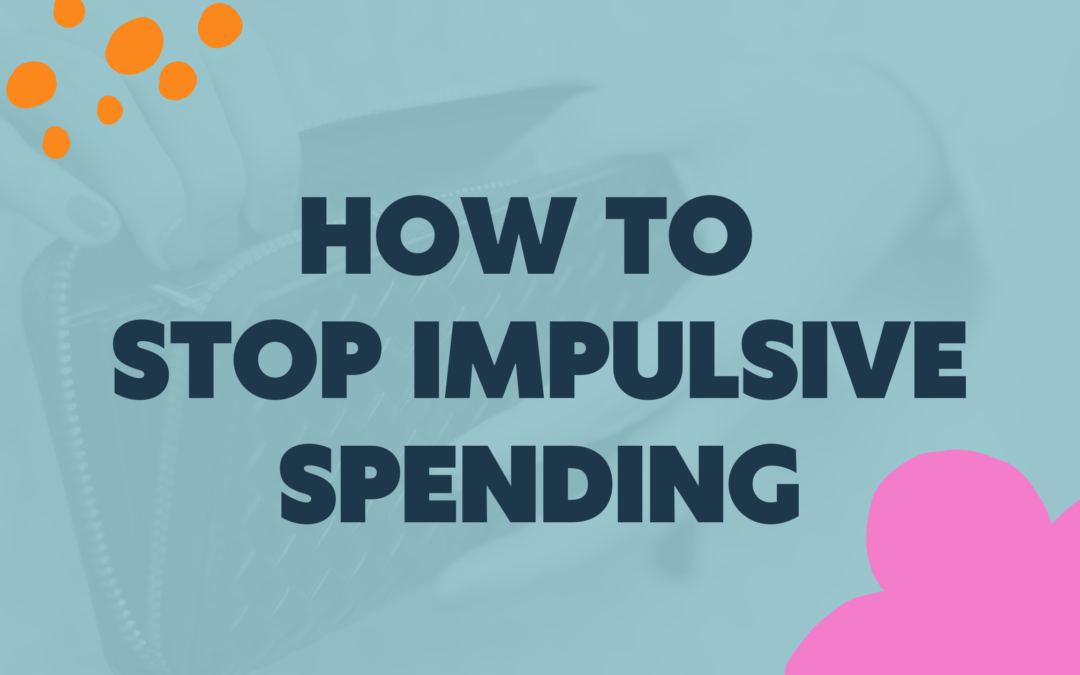Wondering how to overcome impulsive spending?
Are you buying things that are outside of your budget or spending money that you don’t have on things that you don’t need? Do you find yourself wishing that you had more discipline when it comes to spending your own money?
If you want to achieve financial freedom, getting your spending under control is incredibly important. Let’s discuss the causes of impulsive spending and key tips to stop being impulsive with money once and for all!
Discipline Is A Myth
Let’s talk about three things that get in the way of you sticking with your spending goals.
First, is thinking that you lack discipline. How often have you said to yourself: I just need more discipline and I would be better with money!
Let me let you in on a little secret… discipline is a myth!
If you’ve been feeling guilty because you think you have no discipline, you can set that down right now. Science has proven that each of us starts the day with a certain amount of willpower, and that willpower depletes throughout the day.
We do not have unlimited stores of willpower. We just don’t.
So what does that mean for you? It means that discipline is not the problem. It means that your willpower is normal. It means that you need better systems in place to deal with the inevitable reality of willpower depletion.
Values-Aligned Budgeting
The second thing that gets in the way is not having a values-aligned budget. If your idea of what you should be spending is not based on your own personal values, then there’s no way you’ll stick to your budget.
You need a budget that aligns to your own personal values. That will motivate you to want to stick to it. (We’ll talk about how to set this up in a sec).
The final thing that gets in the way is having ready access to all of your money.
In that moment when you have that impulsive urge to buy something, how easy is it for you to do it? Do you have cash on hand? Do you keep all of your credit cards in your wallet? Do you have everything saved in Amazon, where you can just click and the card is already there?
That is part of the problem.
So, what’s the cure to impulsive spending?
First is creating that values-aligned budget we talked about. Here’s how to do it. Go through your budget. You have to decide what matters to you. What are your top priorities? Getting out of debt? Traveling? Treating yourself to delicious meals or meals that you don’t have to cook yourself?
Decide what those top priorities are and then look at your budget and make sure your spending is aligned with those. You should be spending according to your own values and cutting out everything else that doesn’t align with what matters to you.
Once you have that values-aligned budget in place, now we have to put systems in place to make sure that our spending aligns with our budget.
These systems ensure that our money automatically flows from our paycheck into the allotted budget categories. How do we do that? Here are three tips to automate your spending.
Create Separate Accounts
Do you keep all of your money in the same account?
I recommend three separate accounts, at least. One of these accounts should be for savings. As soon as you get paid, put your savings money into the savings account.
One of these should be for bills.
You should know exactly how much your recurring bills are every month. These are things like your rent or mortgage, your cell phone bill, an estimate of your utilities; once you know that amount you can decide how much money from each paycheck should go into your bill pay account. All of your bills should automatically withdraw from that account.
The third account I recommend having is your discretionary spending account.
These are for things that are at your discretion. You decide throughout the month how much you want to spend. If you’re single like me, this could include things like gas and groceries. It could include things like Uber and eating out, movies, getting your hair done, buying an extra special outfit for yourself… these are all discretionary expenses.
I decide at the top of the month how much money in total I want to spend on discretionary items. Then when I get paid I put that money into my discretionary spending account. And then I just spend the money until it’s gone. I don’t track what I’m spending it on. I just spend it.
I enjoy the freedom of spending out of that account without worrying how much I’m spending, what I’m spending it on, or if I’m accidentally spending money that I needed for other things.
Spend “Cash”
Here’s another tip: only carry cash in your wallet so that you never spend more than you have budgeted. Are you keeping your credit cards and debit cards in your wallet? How easy is it for you to see something that you want to buy, look in your wallet, see that your credit card is sitting there and take it out and swipe it?
That is a problem. Your discipline isn’t the problem. The fact that your cards are sitting in your wallet is the problem. If you’re wanting to nip impulsive spending in the bud, then you’ve got to streamline this.
Only spending cash is a great way to make sure that you put limits on how much money you can spend.
And there are other ways to only spend cash outside of putting green money into your wallet. Another is to use gift cards. Some people will allocate gift cards for specific budget categories.
For example, are you intending to spend only a certain amount of money on groceries? How about buying a gift card from your favorite grocery store and putting that budgeted amount on the gift card so you can only spend that amount each month.
The point is to never put anything in your wallet that is not a part of your budget. (This includes your Amazon wallet.)
And the final tip is to not use credit cards for spending.
I know you want your credit card points and your miles, but if you are trying to cure impulsive spending credit cards are often the culprit.
Why is that the case?
It’s one thing to have a certain amount of cash in your wallet or in your bank account and you spend until it’s gone. The problem with credit cards is that the number goes up over time, not down. It’s really hard to stick to a budget when you can easily spend over that budget on your credit card.
I do not recommend carrying credit cards in your wallet.
Instead, if you’re going to use credit cards, use your credit card for predictable bills. Just like we talked about creating a bill pay account, you can set your credit card up as the automatic payment method for your bills. Then make sure that you pay that credit card off every month.
Never put anything outside of those allocated bills on the card and leave the card at home. Put it in a box, put it in the closet, freeze it in a block of ice, or cut it up and throw it away. After you put it into your bill pay account, you no longer need the card do you?
So, which of these methods are you going to try this week?
I want you to set a budget for how much money are going to spend this week. Then set up systems to make sure you can only spend that amount of money.
Trust me, the next time you’re feeling an impulse to buy something above and beyond your budget, you’re going to open your wallet and notice your credit card isn’t there. You are going to feel a little pang… like, I wish I had my credit card so I can buy this thing!
Just warning you, you will.
But you’ll get over it and by the end of the week you will have stuck to your budget. It really is as simple as that. So give it a try this week and let me know how you do.

